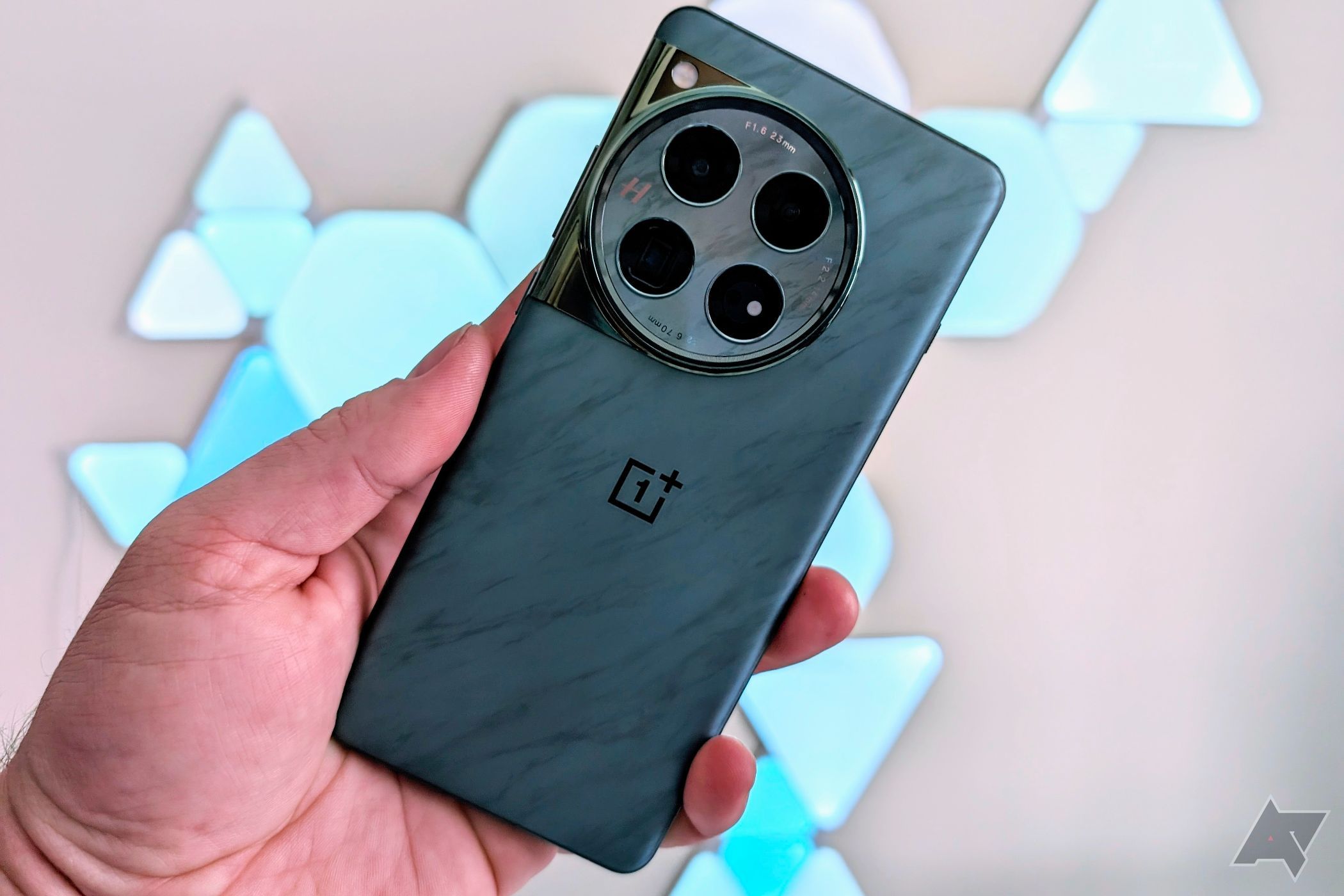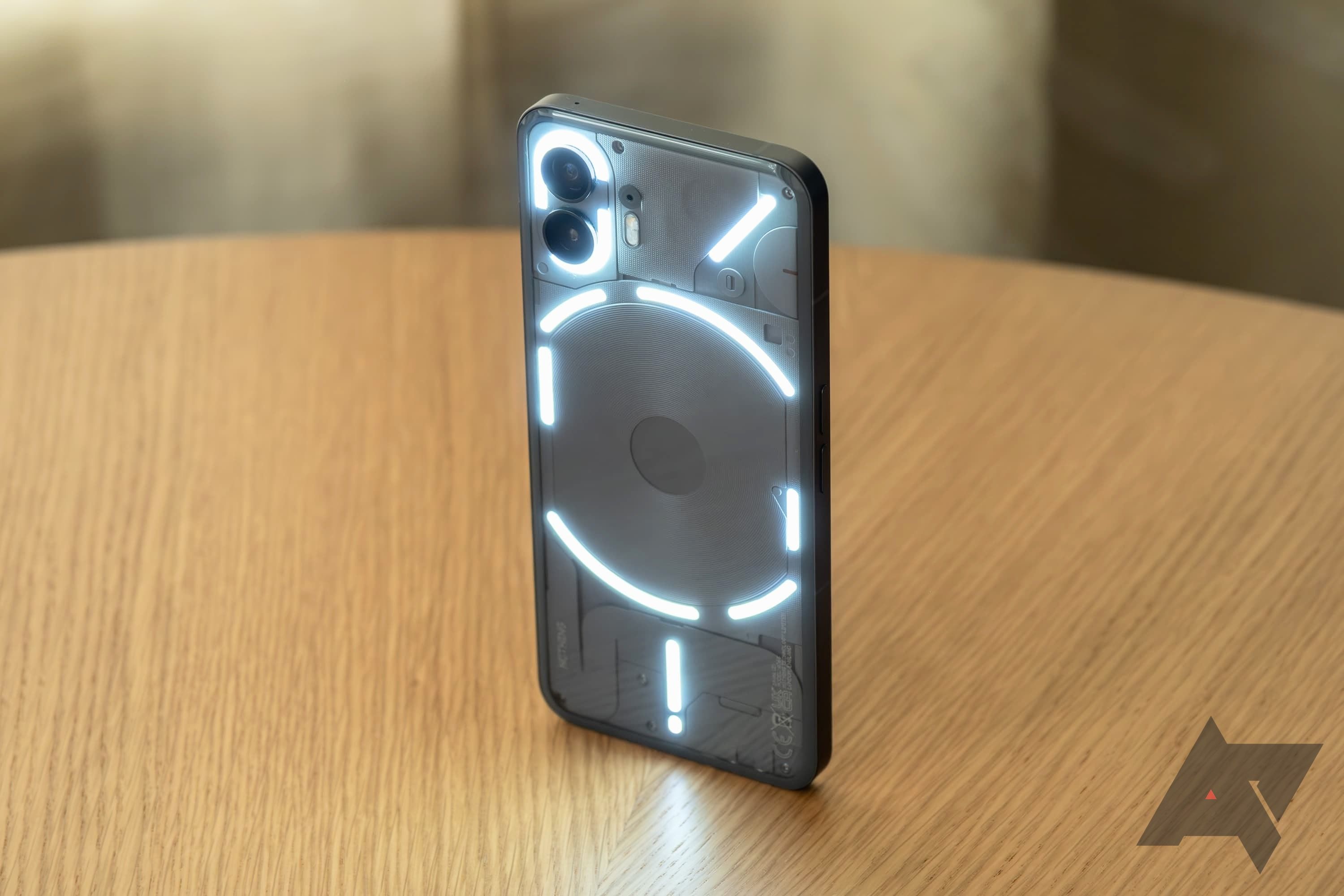Battery technology simultaneously enables today’s impressive mobile electronics and holds them back from being even more mind-blowing than they already are. The need for high-performance, low-power-consumption components has driven the development of advanced chipset instruction set architectures which have underpinned pretty much the entire smartphone industry since its birth. Still, we continue to see some new phones drain their batteries before the day’s up.
Since we put our expertise to work on testing all the best new phones, we can offer real-world insight as to how effective different ones are at working all day without going flat. Rather than just list battery capacities, the phone’s strengths and weaknesses (like brightness, video capture, and AI-powered processing) are considered, so the average consumer can determine if they can get everything they want out of each phone, without needing top-ups throughout the day. And instead of playing any guessing games, we’ve put each of these recommended models through the wringer, sometimes for many months straight.
Phones with the longest-lasting batteries

OnePlus 12
Incredibly fast charging
The OnePlus 12 not only offers top-notch performance but has one of the largest and fastest-charging batteries of any flagship. The large 5400mAh battery can be charged at up to 80W speeds wired and 50W speeds wirelessly. And unlike some OnePlus models from the past, this phone supports LTE and 5G on most carriers.
- Excellent performance with the Snapdragon 8 Gen 3
- Super fast 100W charging
- Great camera performance
- Software has some inconsistencie
- Fingerprint sensor could be better
- Not available directly from carriers
Even with all-day battery life becoming more common in flagships, the OnePlus 12 stands apart thanks to ultra-fast charging speeds. Not only can you easily make it till bedtime without topping up the 5,400mAh battery, but once you’re ready to plug in, the phone charges in record time thanks to an included 80W charger. The phone even supports up to 100W wired charging if you’ve got the right adapter, and 50W wireless charging with the right pad.
Besides battery life, the OnePlus 12 is an excellent high-end Android option with the fast Snapdragon 8 Gen 3 SoC powering Android 14. You can have it with 256GB or 512GB of fast UFS 4.0 storage with 12GB and 16GB of RAM respectively. It has a large 6.82-inch 120Hz AMOLED with plenty of brightness to see outdoors in the sunlight. OnePlus has also promised four major Android updates with five years of security updates so you can rest assured that the phone will be supported as long as you want to keep using it.

OnePlus 12 review: All flagship, no AI
This phone leaves nothing on the table, making for a truly complete package
The camera system produces some great images without going overboard on processing. There’s a 50MP main sensor for the main camera, and 48MP ultrawide camera, and a 64MP telephoto camera with a 3x optical zoom. USB-C 3.2 speeds are supported as well so if you want to take some 4K video, you don’t have to wait too long for it to transfer to a PC. When it comes to carriers, this phone will work on the AT&T, T-Mobile, and Verizon networks with support for 5G, so you can bring it with you to just about any carrier.
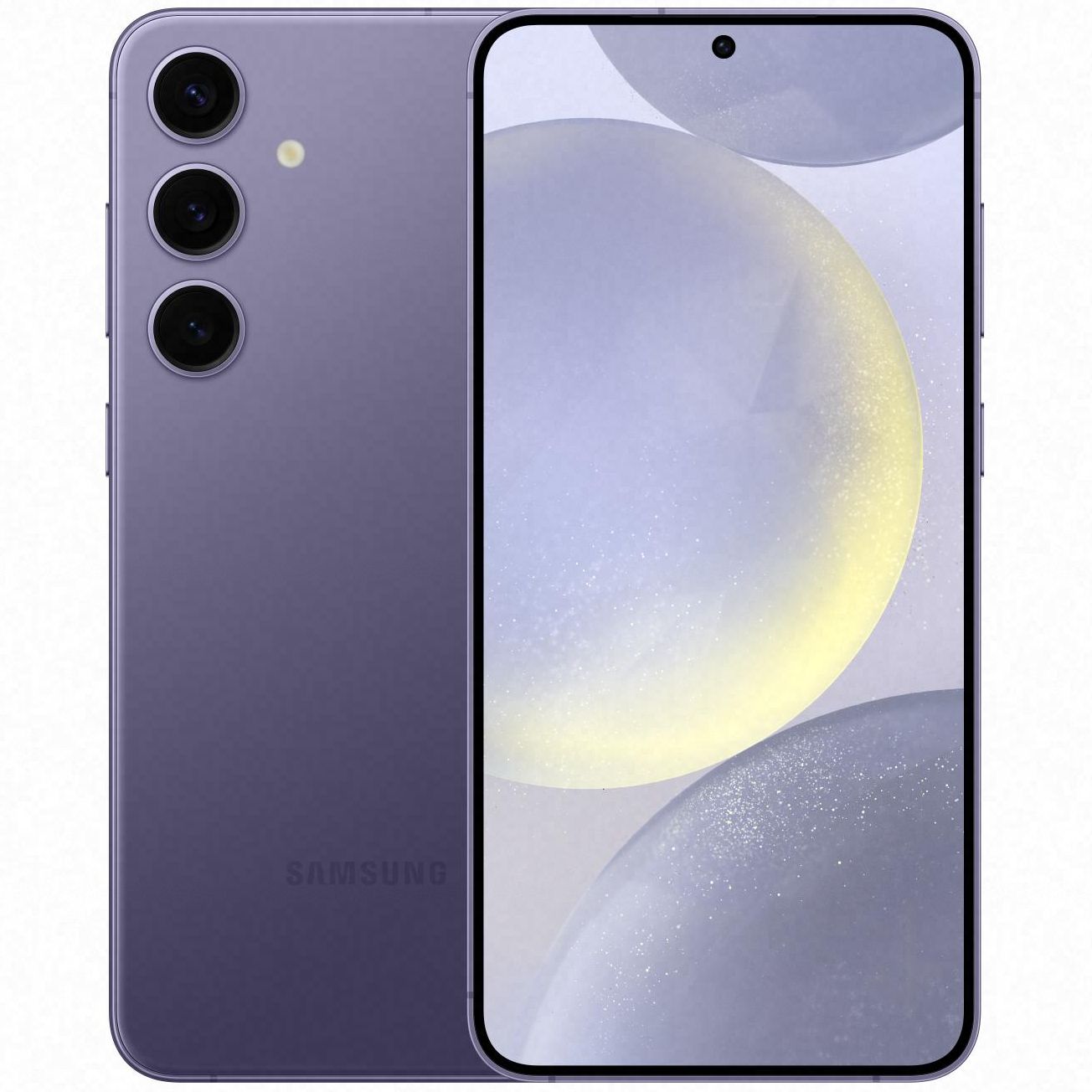
Samsung Galaxy S24+
Stellar software support from Samsung
The Galaxy S24+ is easy to overlook with the more expansive S24 Ultra hogging most of the spotlight, but this is an excellent phone, and probably a better fit for most people the the S24 Ultra. Samsung has packed in a 4900mAh battery with quick 45W charging so you can easily make it through the day on a charge with a quick recharge taking you through the night.
- Fast hardware with the Snapdragon 8 Gen 3
- Long-lasting battery
- Seven years of promised updates
- Camera performance can be a letdown in challenging light
- AI features aren?t all that impressive
While the design of Samsung’s flagship phones has given way to safety and iteration, they still feature nice materials, sturdy build quality, and some of the best hardware available. Powered by the fast Snapdragon 8 Gen 3 SoC with 12GB of RAM, the Galaxy S24+ is one of the fastest phones you can buy. You get a choice of 256GB or 512GB of high-speed UFS4.0 storage with USB-C 3.2 for fast transfers. While it looks a lot like the S23+, the S24+ has a slightly larger and brighter display, a bigger battery, as well as a faster SoC.
This phone has a fairly large 4900mAh battery with support for 45W wired charging and 15W wireless charging. A full charge in the morning should easily last until nightfall and if you’ve got plans in the evening, the fast charging can get you topped up while you get ready to head out. Samsung states this phone can reach 65% charge in half an hour and our review experience matches those claims. Even if you take a lot of photos with the 50MP main camera, you should have plenty of battery capacity.

Samsung Galaxy S24+ review: A safe bet
AI gimmicks aside, this is a very easy-to-recommend flagship
Samsung also claims that this phone will be receiving seven years of Android updates, which is one of the best support policies of any Android phone. With support for the latest 5G network bands on the three major networks, including mmWave, you can keep using this phone for years to come without being out of date.

OnePlus Nord N30 5G
An overall great, cheap phone, despite the compromises
While it’s nowhere near the top contenders in terms of performance, the Nord N30 more than justifies its respectable $300 price tag. The display looks good, the hardware and software work well, and the battery lasts all day unless you’re doing something particularly draining, like playing lots of 3D games.
- Great price-to-performance ratio
- Headphone jack and microSD card slot
- Impressive 50-watt charging
- Less-than-perfect color reproduction
- Feels a bit cheap
The Nord N30 is not a top-of-the-line device, but its specs paint a much brighter picture than you might expect from something that lists at just $300. For less than half the price of the most affordable flagships, you get 8GB of RAM, 128GB of storage, a competent camera setup, and those familiar hallmarks of budget phones, the headphone jack and microSD expansion slot.
It’s an all-around great phone, perfect for those who love modern innovation but aren’t rich or particularly picky about the most cutting-edge hardware. Its nominal 680-nit peak brightness exceeds that of its closest competitors, and the Snapdragon 695 chipset does a fair job, even with visually complex games. The screen, as a whole, also looks just fine — even though it did see a downgrade to LCD from its predecessor’s OLED panel, at least the new one supports refresh rates up to 120Hz.
It makes modest sacrifices in the efficiency department, but its 5,000mAh battery keeps up with frequent phone checkers throughout the day. It’s not at the front of the pack by any means, but you should have no trouble using it from sunup to bedtime without needing to plug it in. For particularly long days, its 50W charging makes short work of top-ups. If you’re on the fence about getting a mid-range phone because you’re worried about battery life, you can kick those worries to the curb with the Nord N30.

Asus Zenfone 10
A long-lasting battery in the palm of your hand
Few phones can compete with the Zenfone 10 when it comes to a premium experience in such a small package. Impressive display quality, as much performance as you could need, and easy one-handed use make this one of our favorite recent releases. Oh, and the battery lasts super long, too.
- Plenty of processing power
- Conveniently compact construction
- A flagship with a headphone jack?!
- Limited availability (and no affiliated carriers)
- Annoyingly mismatched bezels
One of our biggest gripes with the Zenfone 11 is that its off-center pinhole camera and inconsistent bezel widths are a touch annoying to look at, if that tells you anything. Taken as a whole, Asus’ compact wonder is a remarkable smartphone and even bested the Galaxy S23 in our head-to-head showdown. With so few similarly sized offerings available today, those of us in the small hands gang would do well to take note of its power and convenience.
One reason for the offset pinhole camera is that Asus clearly intends for you to play games on this nifty handheld, something it has the power to support. For that matter, we’re entirely pleased with its $700 MSRP, especially when its capable hardware comes into play. And while we’re sometimes apprehensive about less-popular manufacturers and whether their software is ready for prime time, Asus does an excellent job of offering a streamlined interface, as well as the option to alter it to closely mimic stock Android.

Asus Zenfone 10 review: The last of the (good) small phones
Good things still come in small packages
But we’re all about battery life right now, and the Zenfone starts on the right foot just by being so small. A smaller display stays just as crisp with fewer pixels, an advantage that’s only amplified by the efficient Qualcomm SoC. We didn’t have any problems with all-day usage, even with the numerous battery-saving features turned off — after all, we paid for all that powerful hardware, so we’d prefer to use it to its full potential. Quick charging only gets up to 30W, but it does offer 15W wireless charging, and the 4,300mAh battery doesn’t take all that long to replenish.
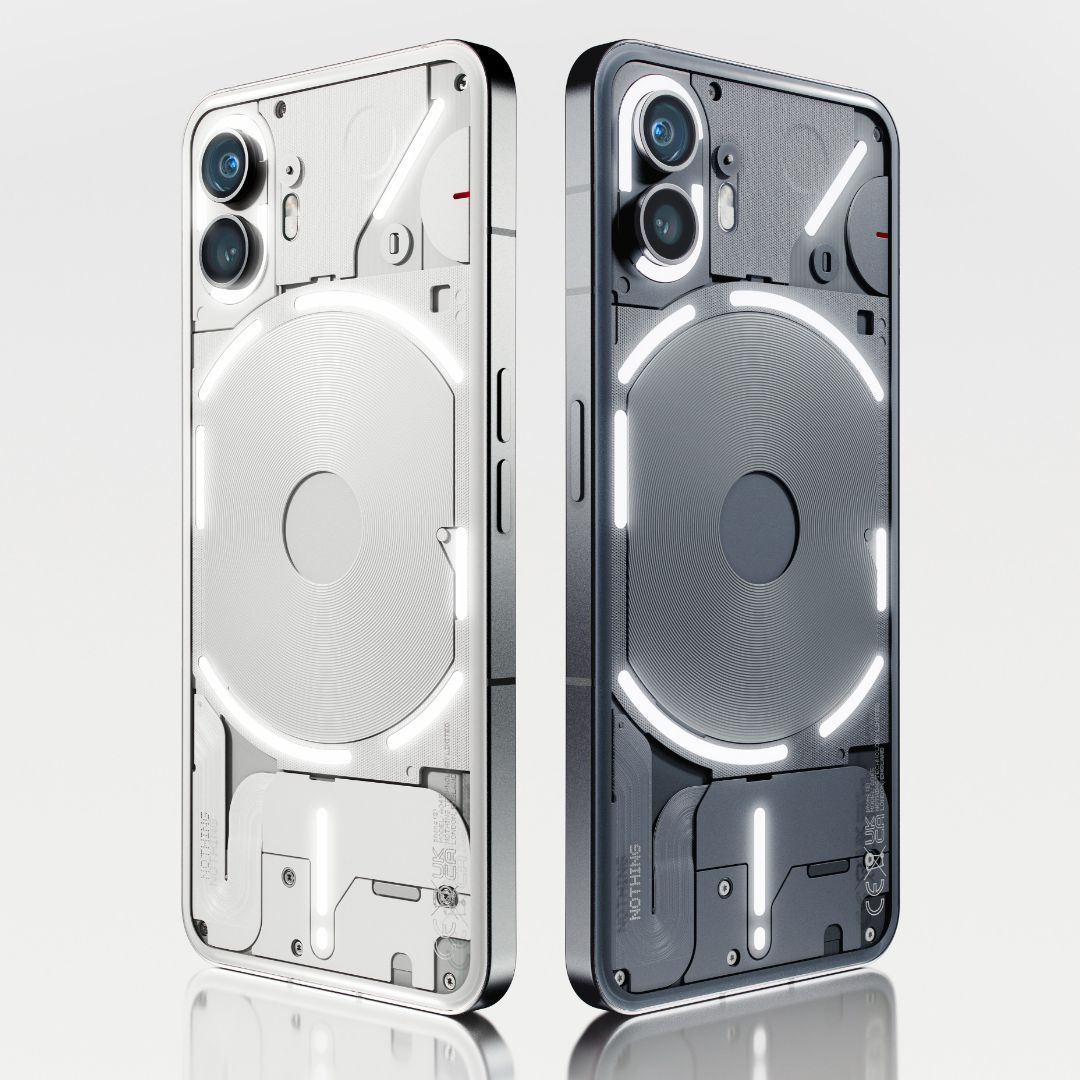
Nothing Phone 2
A refined successor, preserving the Nothing 1’s novelty
Thankfully, the Nothing Phone 2 dispels the fiction that futuristic-looking devices are usually gaudy or under-performing. It provides more-than-capable hardware at a reasonable price, with a battery that lasts for well over a day.
- Looks super neat
- Should never have to worry about the battery
- Doesn’t cost a fortune
- Inconsistent photo processing
- Not certified for Verizon’s network
The Nothing Phone 1 was great but had a few figuratively rough edges that needed refinement. The second-generation update takes those criticisms (mostly) to heart, delivering a no-nonsense Android experience driven by powerful hardware and made a little rosier by a pretty palatable price.
The OLED reaches an impressive 1,600 nits, the snappy software experience satisfies, and few phones look as cool sans case as this one. We’re not surprised at the clean Android implementation, since Nothing makes a pretty solid case through its marketing; it doesn’t bombard users with features (or ads) they don’t like. And its biggest departure from stock Android, the Glyph interface, can easily be turned off if you’re not interested in its bells or whistles.

Nothing Phone 2 review: Finding its niche
Nothing’s first US smartphone is (mostly) a success
Our hands-on testing found that over 24-hour periods, it was nearly impossible to fully drain the battery. That’s a laudable feat for something that performs like a flagship, but costs less than the rest and looks neater to boot. It’s borderline able to last for 48 hours between charges if you don’t use it a ton. When it does need recharging, it can go from 0% to 100% in less than an hour, making full use of the 45W charging — although you’ll need a good PPS charger to get the most out of its circuitry.
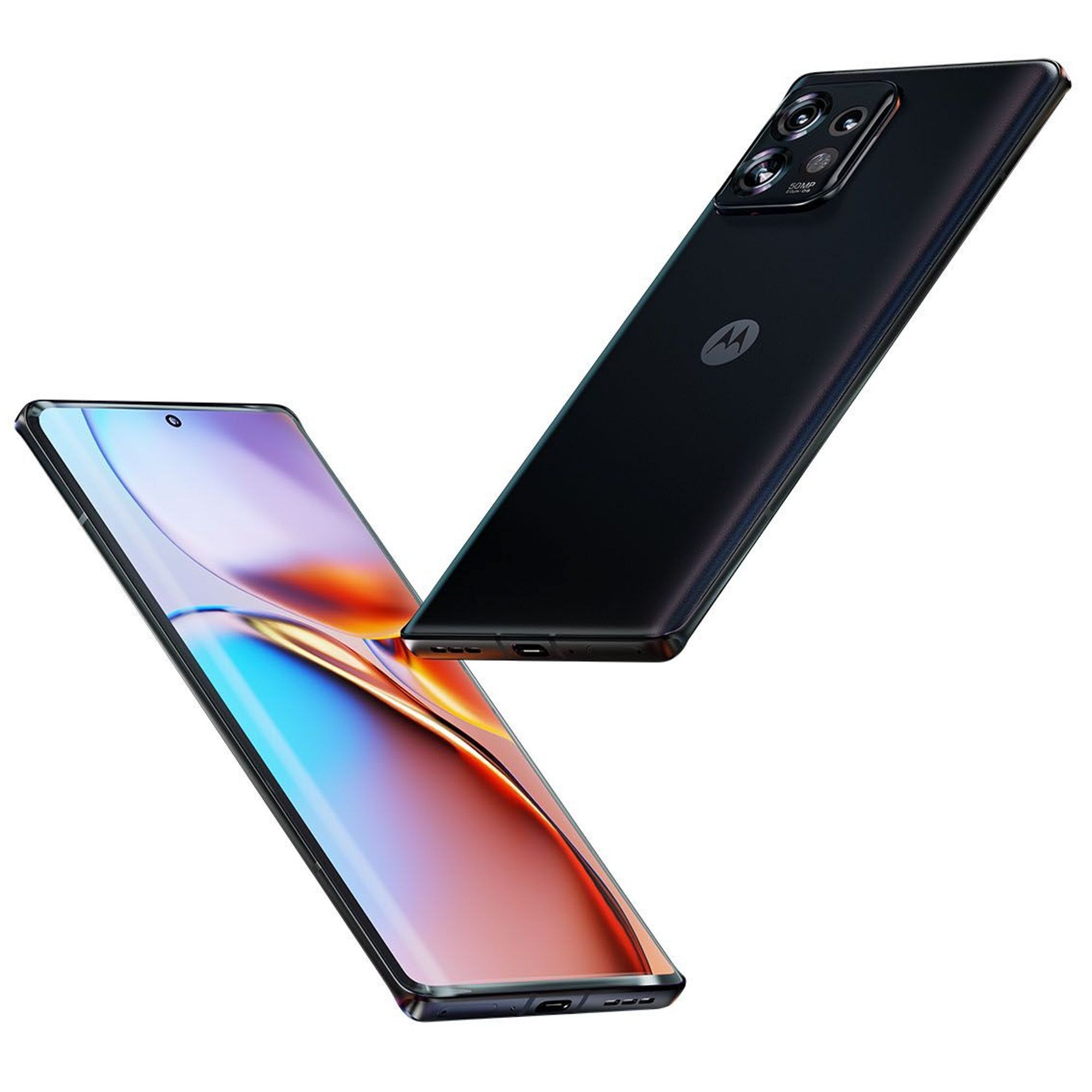
Motorola Edge+ (2023)
Unexpected greatness from once-reliable Motorola
The 2023 Motorola Edge+ is a stark difference from some of its other recent releases. The performance, interface, and design all impress, and the battery lasts longer than most other flagships in this price range. The curved screen did give us issues periodically, but we were able to get used to it.
- Capable hardware
- No-nonsense Android implementation
- Moderate price
- Curved display has got to go
- Cameras aren’t perfect
After a few years of releasing less-than-stellar phones, Motorola’s done a fine job in stepping up to the competition with the likes of Samsung and Google in the flagship department. It’s not exactly flashy, but runs on capable hardware, has a great display, and doesn’t cost a fortune. Plus, there’s something to be said for Motorola’s software, which is as near stock Android as any major manufacturer.
The 2023 Edge+ might not break any new ground, but it runs flawlessly in day-to-day use and looks, feels, and performs like a high-quality device. It rarely overheats or throttles, no matter how hard you push it, and Motorola’s aforementioned software support includes updates until Android 16 with four years total of security updates.

Moto Edge+ (2023) review: It’s time to take Motorola seriously again
The company’s latest smartphone is a surprisingly competent alternative to Samsung or Google
What’s more, we had no difficulty stretching it more than a day without recharging, in some cases getting nearly 48 hours of light use and still not needing to plug in. In a recurring theme, we’re happy to point out that Motorola also includes the top-of-the-line charger needed to provide the phone with its full 68W charging complement. A list price of $800 and frequent discounts of as much as $200 off make this one of the best reasonably priced phones for battery life.

Samsung Galaxy Z Fold 5
Practically a tablet PC, and worth the investment
No foldable will beat a slab smartphone in battery life simply by nature of the design requirements, but the Z Fold 5 comes the closest. Anyone seeking remarkable utility and convenience, but without the hassle of a half-day battery life, must consider Samsung’s high-end folding phablet.
- Tons of useful screen space
- Further-refined hinge
- Battery should just barely last all day
- Limited to 25-watt charging
- Incredibly expensive
The way foldable phones’ batteries are configured, they’ll never be able to outperform a one-piece, solid-state smartphone. But that’s a trade-off you’ll have to accept if you want to get your hands on one of today’s most insanely useful devices. The lineup’s early growing pains have all but disappeared, with a newly designed, robust hinge eliminating any noticeable gap when the phone’s closed and minimizing the crease when it’s open.
The Z Fold 5 knocks it out of the park in terms of performance and user experience with an overclocked Snapdragon 8 Gen 2 chipset, 12GB of high-speed RAM, and Samsung’s well-known OneUI skin. The outer display is fairly large at 6.2 inches, while the inner screen unfolds to 7.6 inches in total. Both of these AMOLED screens run at 120Hz and look great.
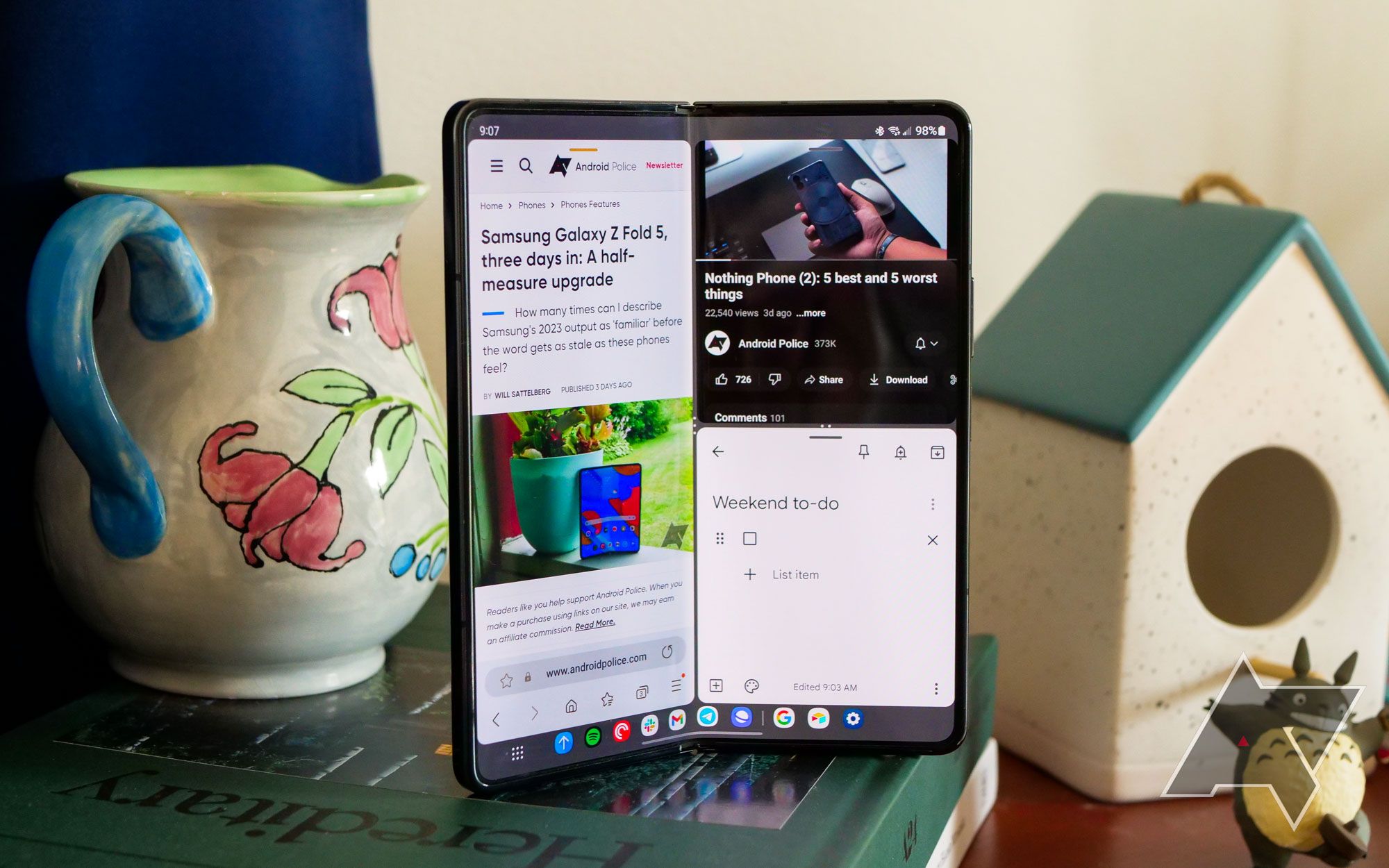
Samsung Galaxy Z Fold 5 review: Polished to a sheen
With more competition than ever before, Samsung chooses to coast
Four years of Android updates and an additional year of security patches mean you’ll be using its massive screen real estate effectively for years. And although the camera hardware isn’t quite up to par with the S23 Ultra’s, it still works great and delivers the eye-popping, colorful image processing Samsung is now known for. So, while the Z Fold 5 is by no means a battery life marathon-winner, it’s the best you’ll get in a foldable.

Apple iPhone 15 Pro Max
The iPhone battery controversy was terribly overblown
Far be it from the experts at Android Police to ignore a good phone. Apple’s latest top-of-the-line model delivers some of the best hardware yet, including a blazing-fast in-house chipset and video recording that no Android phone can match. It’s one of the best opportunities yet for jumping ship to a new OS.
- Unbeatable performance
- Now with USB-C
- Customizable Action button
- Poor notification and home screen management
- Frustrating autocorrect failures
We won’t go out of our way to convince you to switch to iOS, but Apple is certainly trying pretty hard. Its latest large-format phone does a lot of things right, including running the company’s class-leading A17 Pro SoC and displaying vibrant, clear on-screen images that few Android devices can match. And while some Android users balk at the operating system, in general, it’s quite capable and makes daily use simple.
We’re big fans, in particular, of the 15 Pro Max’s camera setup. Apple has always done a great job with photo and video processing, but the last few generations have stepped up their game. One indicator that Apple is taking image processing seriously is the inclusion of pro-quality LOG color and ProRes video support, which can result in legitimately studio-quality video in the right hands. Combined with in-body image stabilization and 5× telephoto zoom, it’s one of the best phones for capturing images and video.
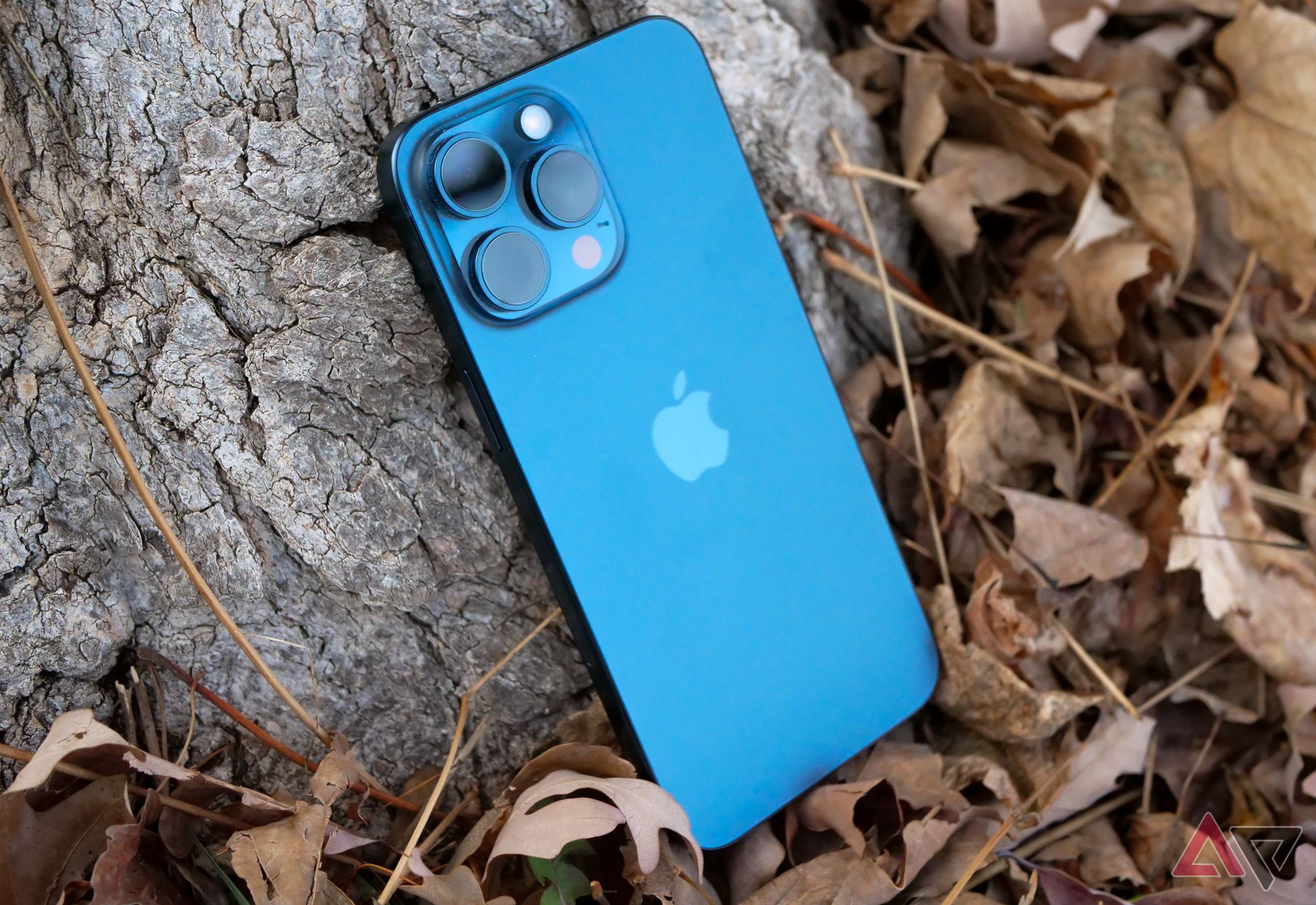
iPhone 15 Pro Max review: The phone everyone else is choosing
The bubbles might be bluer, but is the grass greener?
Seven hours of screen time posed no problems with this massive handset, despite the incredible amount of pixels it has to power. This doesn’t surprise us, as Apple typically outfits its phones with good batteries and does well at optimizing software to minimize battery drain. Although we’re more than a little disappointed at a 27W peak charging rate for a $1,200+ smartphone, at least you won’t have to worry about topping off the battery during the day.
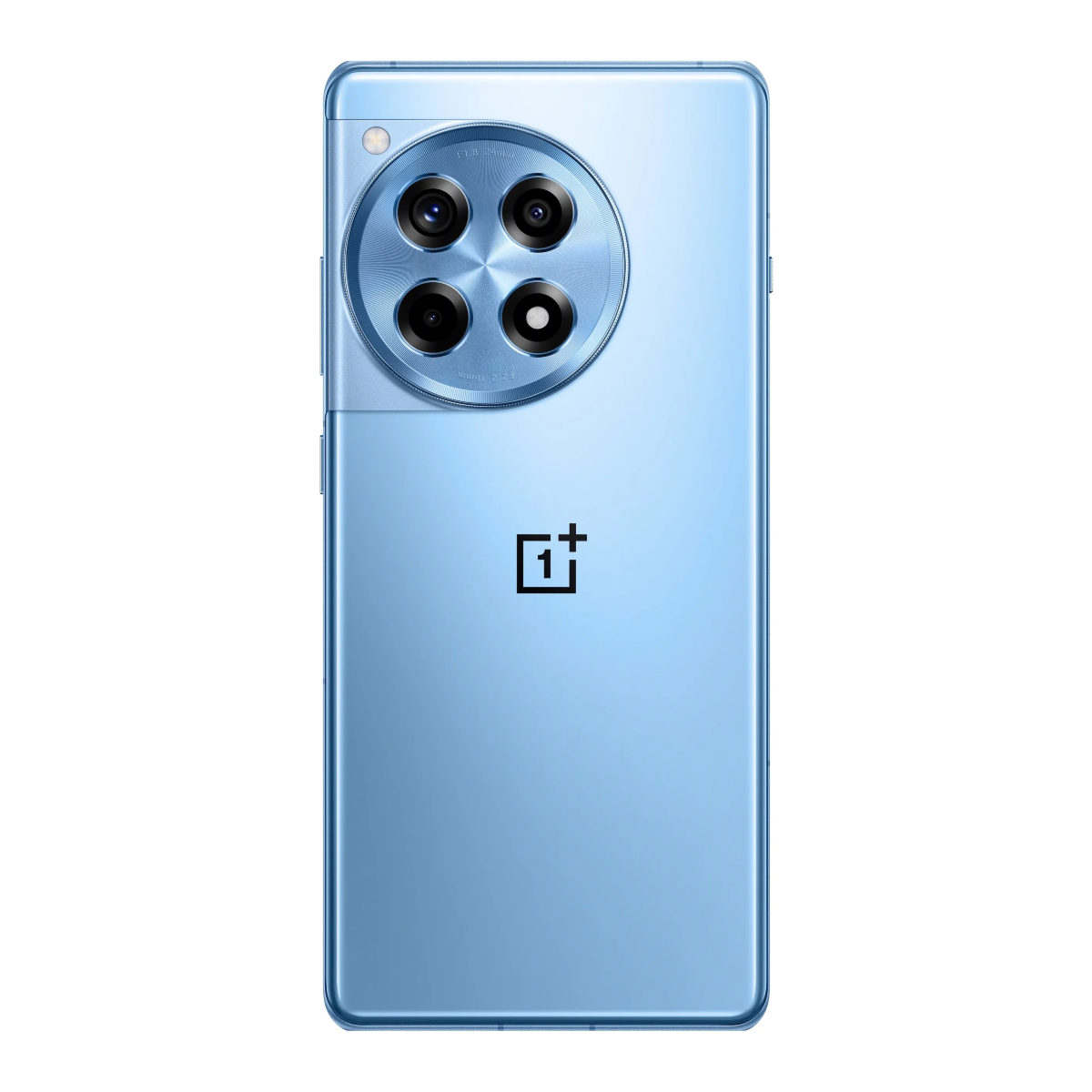
OnePlus 12R
80W charging in a budget phone
The OnePlus 12R is a budget phone with a large 5500mAh battery and some of the fastest charging of any phone you can buy at 80W. It’s got a powerful Snapdragon 8 Gen 2 SoC powering it with 5G support on most carriers. You even get three major OS updates with four years of security updates.
- Large battery with 80W charging
- Fast Snapdragon 8 Gen 2 SoC
- Beautiful 120Hz AMOLED display
- Camera quality is lackluster
- Not as many updates as the flagship model
From the spec sheet, the OnePlus 12R looks more like a flagship phone from last year than a budget phone from this year. It’s packing the still very capable Snapdragon 8 Gen 2 SoC under the hood with up to 16GB of RAM. Its storage is pretty quick with UFS 3.1, though its USB speed gets a cut to 2.0 transfer speeds. Still, from a few feet away, it looks like a high-end OnePlus phone, and with plenty of performance for the latest apps, including 3D games, you may forget you’re not using a flagship model.
This phone has a large 6.78-inch AMOLED panel that’s bright enough to see outside while you’re taking pictures. While the cameras did get a cut from the OnePlus 12, the 50MP main camera can still capture some decent images with the right light. When it comes to battery capacity, though, there are no compromises. While there’s no wireless charging, you get a massive 5500mAh battery with support for 80W wired charging with the included charger.
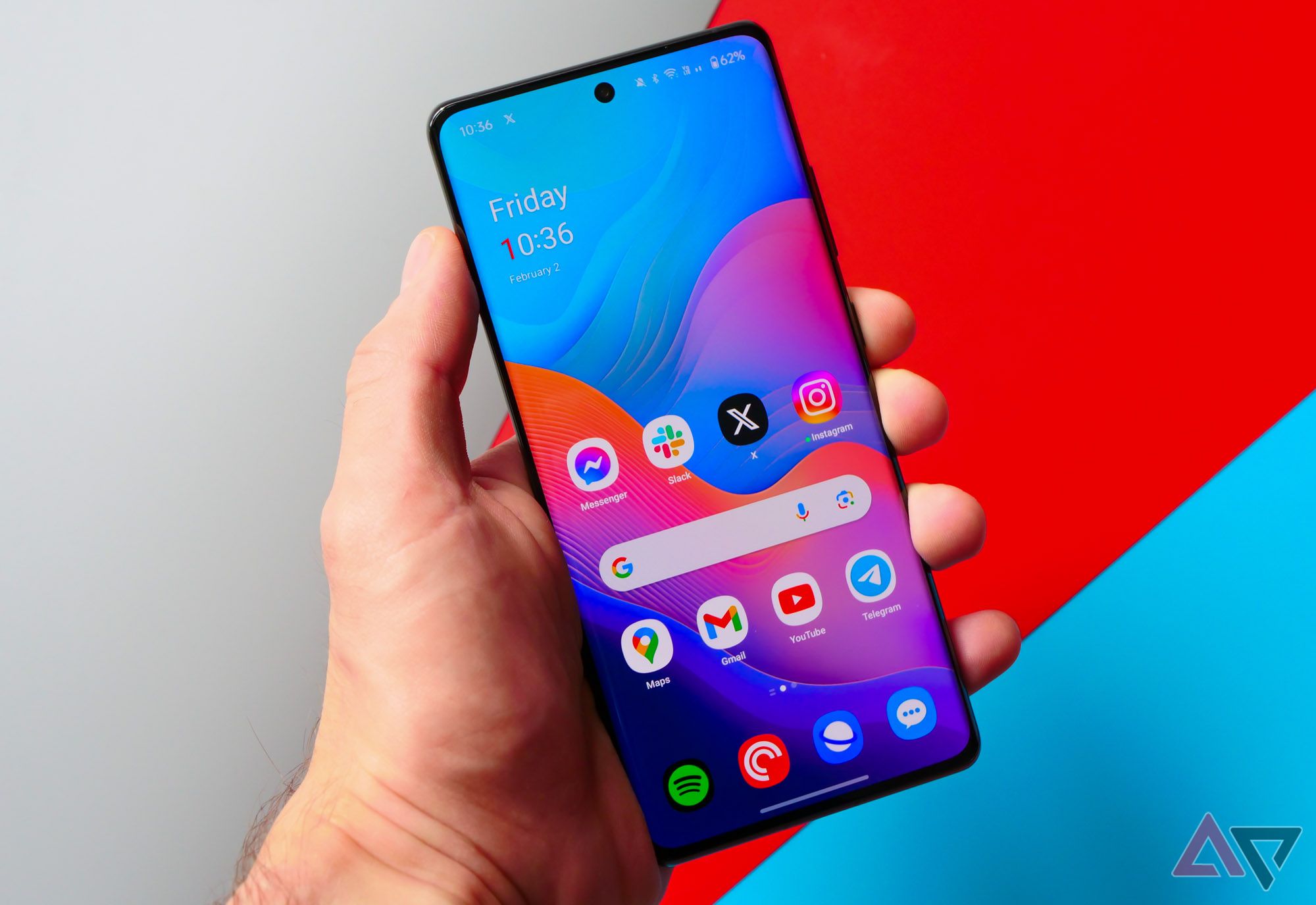
OnePlus 12R review: A real flagship killer for $500
A phone that packs all the power you need for the price you want to pay
The OnePlus 12R is set to get three major Android updates with four years of security updates, which isn’t bad for a budget device. With Android 14 out of the box, you can keep using this phone for years to come without being out of date. With 5G support as well on the Big Three carrier networks, you’ll also get strong data speeds no matter which carrier works best in your area.
Choose a phone with all-day battery life and then some
The OnePlus 12 is more than a one-trick pony with some of the best mobile hardware alongside its impressive charging tech. It has the ultra-fast Snapdragon 8 Gen 3 SoC as well as 5G and Wi-Fi 7 support, which gives it plenty of power to last for years. With a software support policy that’s also set to last for years, this phone has a lot of longevity in more ways than one. It, like the Motorola Edge+, even comes with a high-speed charger right in the box. And aside from battery life, the OnePlus is simply a great phone overall.
While it falls short of the OnePlus 12 in terms of battery size and charging speed, the Samsung Galaxy S24+ is still a great pick for those looking for a long-lasting phone. Samsung has upgraded the battery over the S23+ to 4900mAh while retaining the same quick 45W charging. With Samsung’s excellent software support and wealth of accessories, like the best Galaxy S24+ cases, this phone could still be a great pick for some.
You have a couple of great options for spending a little less, but also getting a high-quality phone with great daily longevity. The OnePlus Nord N30 takes the best value prize, as it’s quite simply a steal at $300. If you have the budget for a $500 phone, the OnePlus 12R knocks it out of the park with a large 5500mAh battery and fast 80W charging support.
You’ll also find some slightly less typical phones with powerful cells and efficient processors. There’s the Nothing Phone 2, which looks like something out of Blade Runner and delivers a novel experience at a reasonable price. And, if you can afford it, the iPhone 15 Pro Max offers plenty of good reasons to switch over to everybody’s favorite fruit-themed electronics manufacturer.

OnePlus 12
Incredible performance, considering its reasonable price
No matter how great your battery life is, you’ll eventually need to recharge and when you do, the OnePlus 12 completes the job faster than any other phone on this list. Besides that, its got a large 5400mAh battery that can easily last all day thanks to the power-efficient, yet powerful, Snapdragon 8 Gen 3 SoC.




